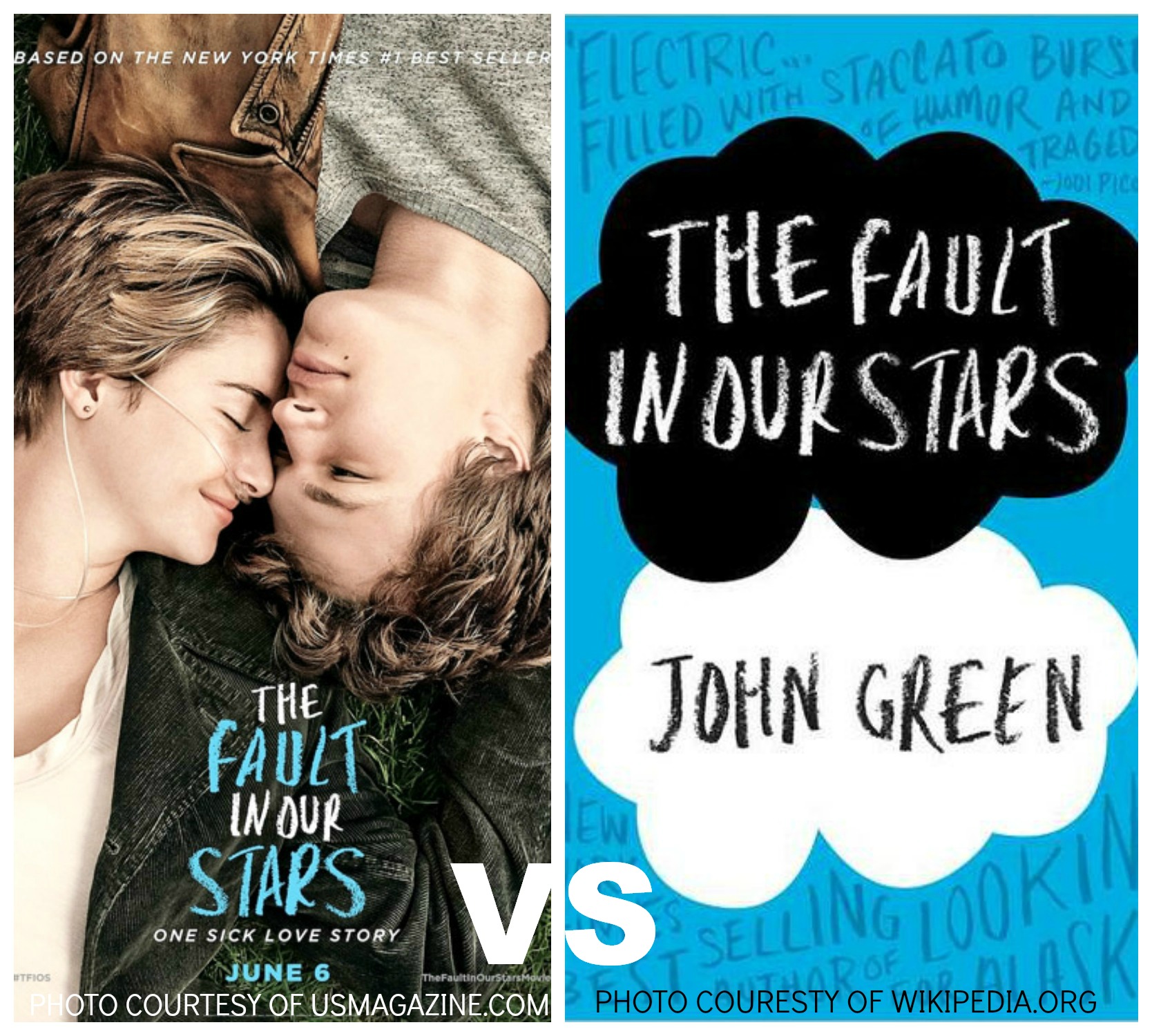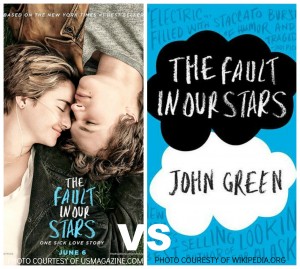

For decades, literature has been the inspiration behind some of the greatest films in movie history. Bringing popular books to the big screen has been especially evident in the last two or three years with releases of book-to-movie films like Lord of the Rings, The Wolf of Wall Street, Divergent, The Hunger Games and coming up on June 6, The Fault in Our Stars.
The Fault in Our Stars, written by John Green, first made its way onto bookshelves January 10, 2012. The novel follows 16-year-old Hazel Grace Lancaster, a terminally ill cancer patient who lives a repetitive, uneventful life. Everything suddenly changes when she is forced to attend a cancer support group where she meets Augustus Waters, a charming ex-basketball player and cancer amputee.
The bittersweet story of the book’s young characters took audiences by storm, quickly rising to the #1 spot on both Amazon.com and the Barnes and Noble bestselling list. The Fault in Our Stars currently holds a 4.5 star rating on goodreads.com. As with all popular books, the fantastic reception indicated very early on that The Fault in Our Stars would soon make its way to the big screen.
As predicted, filming for the The Fault in Our Stars movie began on August 26, 2013. Being such a huge fan of the book, I was slightly disappointed to hear of the decision to turn such a life-changing novel into a potentially dreadful movie.
Admittedly, the casting for The Fault in Our Stars looks pretty decent: Shailene Woodley (who made an impressive debut in another book-to-movie film, Divergent) as Hazel, and Ansel Elgort (who also appeared in Divergent) as Augustus. Josh Boone, director, even managed to round up Willem Dafoe to portray Peter Van Houten, one of the book’s most vital characters. But a somewhat decent cast almost never promises movie success.
Directors and screenplay writers tend to cut out important information regarding character/plot development. Sometimes, parts of the original story are even completely changed or rewritten to appear more dramatic. Fans have many fears when their favorite books are rewritten into movies, and one of the most prominent is that the movie version won’t capture the greatness or entirety of the book. Since cuts to the original story almost always have to be made, that fear is very rational. Huge changes to books occurs a lot more than we think when they are made into movies.
One example of a book that was completely rewritten as a movie is My Sister’s Keeper by Jodi Picoult. The plot of the book centers around Anna Fitzgerald, a 13-year-old girl genetically conceived in order to provide bone marrow for her older sister Kate, who has been plagued with leukemia since childhood. She becomes fed up with being defined by her sister’s illness and hires a lawyer when she is finds out she is expected to donate a kidney to her.
[SPOILER ALERT!] In the book, it is revealed to the reader that Kate had asked Anna to sue their parents. Not only did Kate not want Anna to go through with the transplant, Kate herself was ready to accept death. After winning the court case, Campbell Alexander, Anna’s lawyer, drives her home. Unfortunately, their car is hit by a truck. Anna and Campbell are rushed to the hospital, where Anna is pronounced braindead. Against both her and Kate’s wishes, her kidney is transplanted into Kate. Kate survives the surgery and lives for a few more years.
In the movie, the ending is completely different. Although it is revealed Kate did in fact persuade Anna not to have the transplant, Anna herself was fully ready to go through with it. Before the court case ever happens, Kate dies peacefully in her sleep at the hospital. Anna ends up winning the court case anyway, and she and her family move on. [SPOILER ALERT OVER!]
The difference between the two endings upset fans of the book everywhere. Even the author of My Sister’s Keeper wasn’t pleased. Jodi Picoult is quoted by USA Today as saying, “Having the ending changed would certainly not have been my choice. I wrote the ending very intentionally because I wanted to leave the reader with a certain message. And changing that ending changes that message.”
Despite the downsides, there are positive aspects of making book-to-movie films. One of the greatest things about these films is being able to watch favorite characters come to life on screen. Indeed, there is a certain beauty in being able to create your own visuals and interpretations of characters as you read. But there is also something so fulfilling about being able to watch and emotionally attach yourself to the characters again through a different interpretation.
Hopefully, The Fault in Our Stars movie, and future movies based on our favorite books, won’t disappoint us. But, it’s important to remember that regardless of how good or bad the movie versions are, we will always have the personalized connection to the book for a long time to come.
loved both